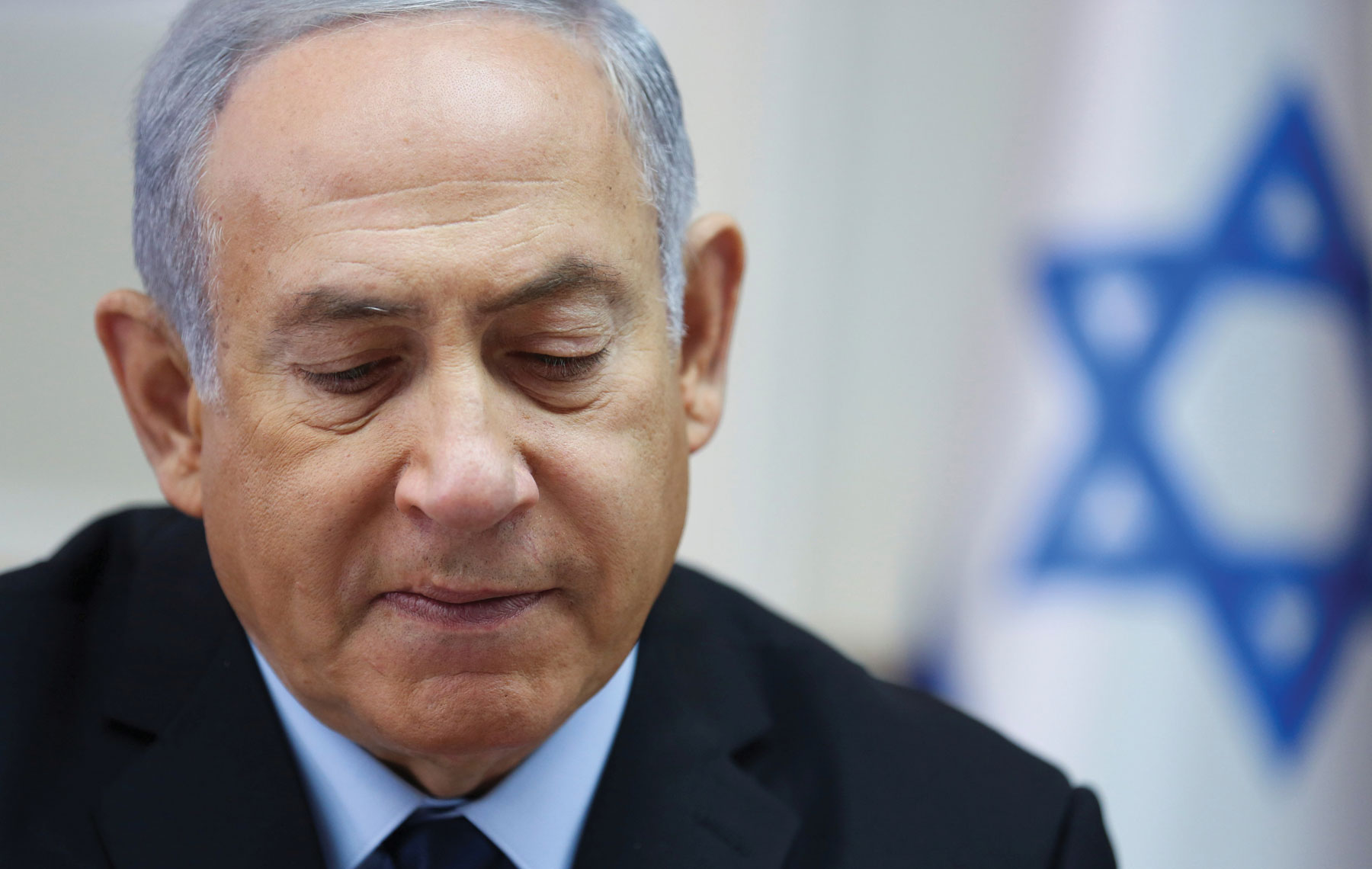
Once again, it’s time to talk about Israel’s next elections.
Earlier this week, two events made early elections — possibly in May — much more likely. Event one: The police recommended to indict Prime Minister Benjamin Netanyahu on bribery charges. Event two: Israel’s Supreme Court gave the government until mid-January to pass a military draft law, for which there is not majority support among current coalition members. To prepare for this event, read the next eight comments (it’s Hanukkah, so eight is the only number we considered appropriate). And note that events on Israel’s northern border can thwart all previous calculations. The Israel Defense Forces (IDF) launched an operation in the north on the morning of Dec. 3 to expose and destroy Hezbollah attack tunnels. The operation was limited in scope, but one never knows where it might lead (I’ll update developments concerning this operation on the website).
1. Regarding Israel’s elections: It’s early. It’s not known who is running or how. Former IDF Chief of Staff Benni Gantz faces possibly the most important decision. Polls show that he can get more than 15 in the Knesset as a head of a stand-alone party, or close to 25 as the head of the Zionist Camp. With more seats, he might conceive of becoming the next prime minister. With an independent party, he has more flexibility in joining various possible coalitions and securing a significant portfolio. So going it alone makes more sense, as long as Netanyahu seems likely to have the majority to remain as prime minister.
2. If you believe the polls (I do, based on experience), if Gantz runs alone, the Zionist Camp is in huge trouble. It is likely to become insignificant even as an opposition party.
3. The polls also show that Netanyahu can have a small yet coherent coalition without Gantz or Yair Lapid. Or he can invite one of these two into his coalition and have a very large coalition. Or he can invite both and have a gigantic coalition (possibly more than 80 seats). The question, of course, is whether it can also be functional.
Netanyahu did well this term with a small and coherent coalition.
4. It’s important to remember that parties with four to five projected seats might not pass the electoral threshold. If, for example, Shas (an ultra-Orthodox party) fails to get four seats (as some polls predict), coalition calculations become more complicated.
5. Polls predict that about 20 seats will go to new, unknown, barely established and untested parties (the “social” party of Knesset member Orly Levy-Abekasis, and the new Gantz Party). Clearly, Israelis are looking for something that doesn’t currently exist in their political universe. Or possibly they’re looking for a way to beat Netanyahu.
“It’s important to remember that parties with four to five projected seats might not pass the electoral threshold.”
6. Most polls we look at were taken before the police made its recommendation to indict Netanyahu. On Dec. 2, after this development, the prime minister gave a powerful speech to his supporters, defending himself and denouncing what he interprets as a double standard in the way he is investigated. Don’t be surprised if the police make Netanyahu less popular among his rivals and more so among his supporters. Especially so, if right-wing voters feel that their camp might lose its grip on the reins of government as a result of Netanyahu’s troubles.
7. Opting for new elections over the draft bill can be tricky for the government. Because the Charedi deferment of military service is highly unpopular among Israelis (for good reason), the opposition will surely try to convince the voters that the draft bill is the most important item on the agenda. This will not be easy, as Netanyahu’s investigation is likely to dominate the news.
8. The next election won’t necessarily be a race for prime minister. Unless something dramatic changes (early indictment, health issues, voters’ sudden change of heart), Netanyahu will be remain prime minister.
So you might want to think about the next election as a race on who is going to be defense minister. Avigdor Lieberman wants the position back — and will get it back only if he has enough seats and bargaining power. Naftali Bennett wants it badly. He will need even more bargaining power because Netanyahu dislikes him. There is also Gantz. If he gets many votes, Netanyahu can use him either to tame Lieberman’s/Bennett’s ambitions — or as defense minister in a coalition that begins with 45 to 50 seats (the combined projected number for Likud and Gantz).
In other words: There’s a good chance that the race for defense minister will be much fiercer, crueler, bloodier and more interesting than the race for prime minister.























 More news and opinions than at a Shabbat dinner, right in your inbox.
More news and opinions than at a Shabbat dinner, right in your inbox.